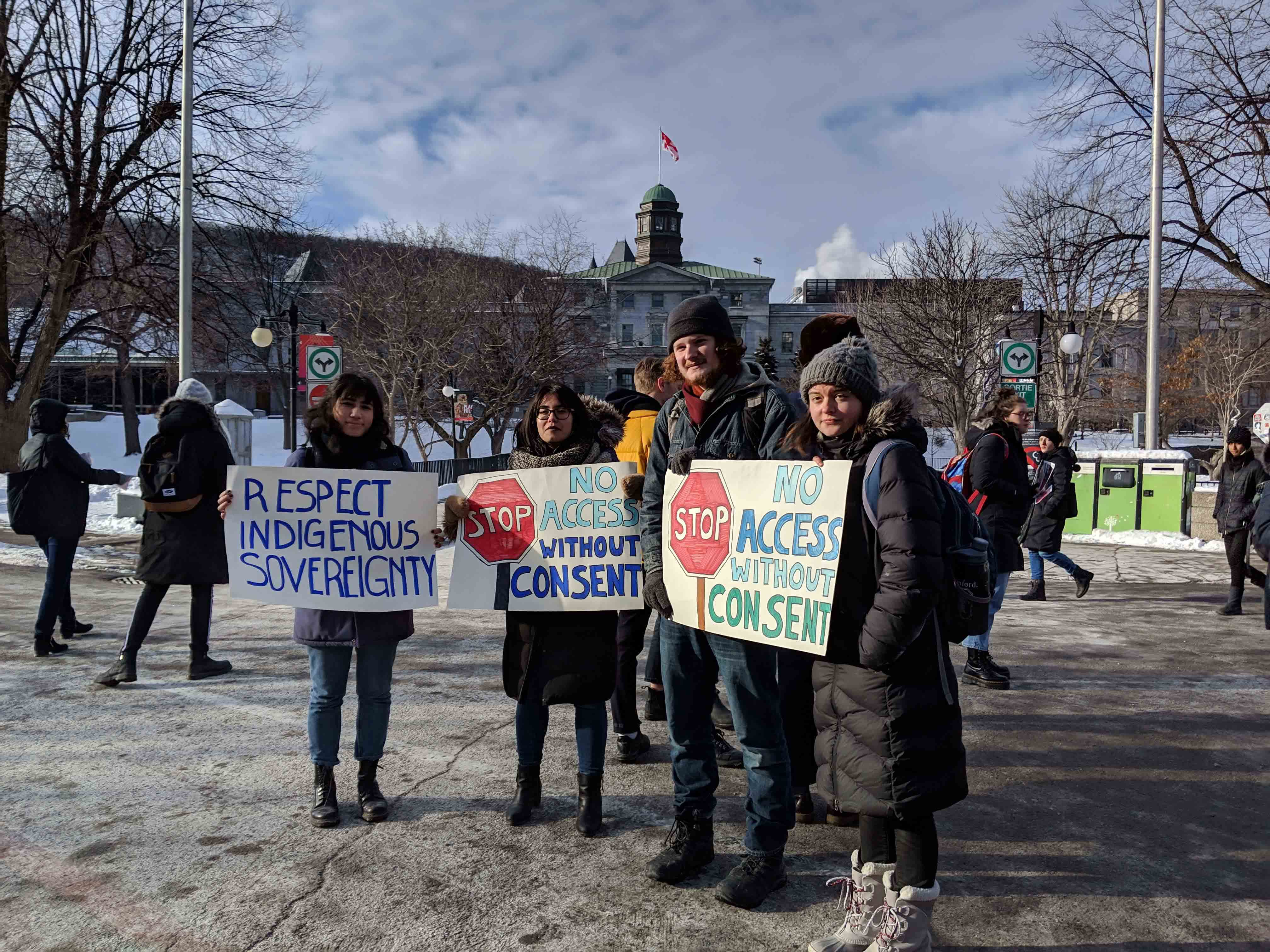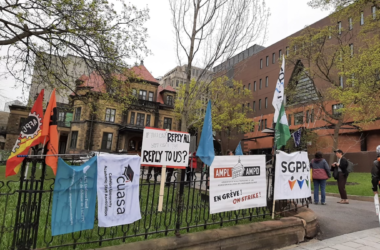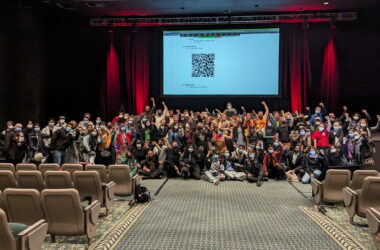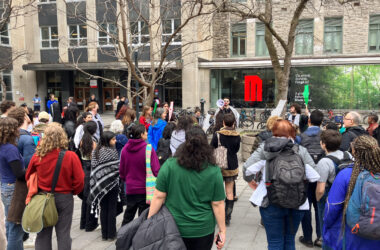Around 70 students and members of the Montreal community gathered at the Y-intersection on Jan. 14, joining tens of thousands across the country to show solidarity with the Wet’suwet’en First Nation’s fight against pipeline expansion in British Columbia (BC). Members of the Wet’suwet’en Nation have set up checkpoints along the proposed route of the Coastal GasLink pipeline, which would run through the BC interior across the territory of 20 indigenous bands. One of the checkpoints, the Unist’ot’en camp, garnered significant media attention after the RCMP arrested 14 protestors at the site on Jan. 7.
Although elected chiefs from the 20 bands have approved the pipeline, members of some nations have contended that this does not constitute sufficient consent from all of the indigenous peoples that will be affected by the pipeline project. Hereditary chiefs from the Wet’suwet’en Nation have publicly opposed the pipeline.
Ella Martindale, co-chair of the indigenous Student Alliance (ISA) at McGill and member of the Cowichan First Nation, emphasized that the protest was a demonstration against threats to indigenous sovereignty across Canada—not just an anti-pipeline protest.
“This demonstration should serve to acknowledge indigenous sovereignty over all else while standing strong against the imposed settler-colonial state that continues to cause harm to indigenous peoples and their land,” Martindale said.
Tomas Jirousek, member of the Kainai First Nation in Alberta and vocal advocate for the #ChangeTheName campaign on McGill’s campus, believes that the issue of sovereignty extends beyond the pipeline.
“This is about indigenous nations being sovereign,” Jirousek said. “This isn’t about a pipeline for us. This is about every indigenous nation having a right to decide for themselves, as sovereign people, as autonomous people […] what to do with their own territories.”
According to Jirousek, construction on indigenous lands without extensive consultation is a violation of consent and indigenous sovereignty.
“When this country was founded, we never gave up the right to be sovereign people, to maintain our own chiefs and councils, [or] to maintain our own ways of life,” Jirousek said. “So, this isn’t just about the pipeline. Some nations will support pipelines. Some won’t. But it isn’t for non-indigenous people to force something on us that we don’t want ourselves, and that’s what’s happening here.”
Nakuset, executive director of the Native Women’s Shelter of Montreal and member of the Cree First Nation in Saskatchewan, urges anyone looking into the dispute to think critically about how consultations with indigenous peoples are conducted.
“What these big businesses have in mind is just meeting with a particular chief and then signing off on [the pipeline],” Nakuset said. “So, when people say ‘consultation,’ they better really look into what exactly happened at that table and who was at that table.”
According to Nakuset, Coastal GasLink is not considering the impact of the pipeline on future generations.
“There’s something called the seven generations, [which] is a prophecy where we don’t think about the next generation, but we think about how we’re going to keep this land in a good way for the next seven generations,” Nakuset said. “The people that want to build the pipeline are not thinking about that. They’re thinking about now and how they’re going to fill their pockets now.”
Nakuset explained that a clash of values is central to the conflict between corporations like Coastal GasLink and First Nations.
“Indigenous people are really concerned about the next seven generations, and this is the difference between our values as indigenous people and those that are more into the money,” Nakuset said. “The values are so completely different, and, if we don’t bow down to them, they find ways of pushing it forward.”










No wonder a university degree does not mean they gained any intelligence. Serious do you always accept one side of a story before you hop on board a protest? The Unist’ot’en want the goverment to give them land that might not even be theirs. There are 4 aboriginal nations at the negotiating table for that land and you take the side of anarchists in an uprising.